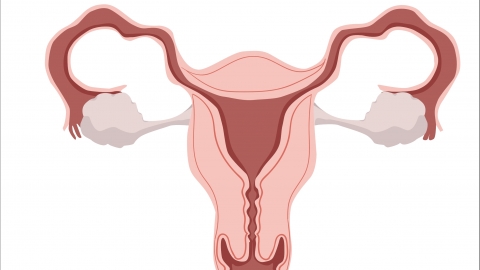What causes endometrial thickening?
Generally, the main causes of endometrial hyperplasia include hormonal fluctuations during the reproductive years, hormonal imbalances after menopause, polycystic ovary syndrome, endometritis, and long-term use of hormonal medications. If discomfort symptoms occur, it is recommended to seek timely treatment at a regular hospital. Detailed analysis is as follows:
1. Hormonal Fluctuations During the Reproductive Years
During the menstrual cycle in women of reproductive age, estrogen promotes endometrial proliferation. If ovulation is irregular and progesterone levels are insufficient, the endometrium may not shed cyclically, leading to thickening. It is important to maintain a regular lifestyle, avoid staying up late, regulate endocrine function through moderate exercise, and maintain hormonal balance.
2. Hormonal Imbalances After Menopause
In postmenopausal women, ovarian function declines and estrogen levels fluctuate abnormally, which may stimulate abnormal endometrial proliferation and thickening. Regular gynecological ultrasound examinations should be conducted to monitor endometrial thickness, with timely intervention if abnormalities are detected.

3. Long-Term Use of Hormonal Medications
Long-term use of estrogen-containing medications, such as conjugated estrogens tablets, can continuously stimulate endometrial proliferation, leading to thickening. Medication regimens should be adjusted under a doctor's guidance, and progesterone medications may be combined to counteract estrogen effects when necessary. In severe cases, diagnostic curettage may be required to determine the nature of the endometrium.
4. Polycystic Ovary Syndrome
This condition leads to elevated androgen levels in the body, which affects estrogen metabolism, causing the endometrium to be continuously stimulated by estrogen and resulting in thickening. Under medical guidance, medications such as dydrogesterone tablets, cyproterone acetate tablets, or ethinylestradiol cyproterone acetate tablets may be used to regulate hormones and improve ovarian function.
5. Endometritis
Inflammatory stimulation can cause endometrial congestion and edema, and long-term chronic inflammation may lead to endometrial tissue proliferation and thickening. Follow medical advice to use medications such as cefuroxime axetil tablets, azithromycin dispersible tablets, or ofloxacin capsules to control inflammation and prevent further endometrial thickening.
In daily life, maintain a balanced diet and reduce intake of estrogen-containing foods; maintain a positive mindset and avoid excessive mental stress; adhere to moderate exercise and weight control; and undergo regular gynecological examinations for early detection and treatment.




